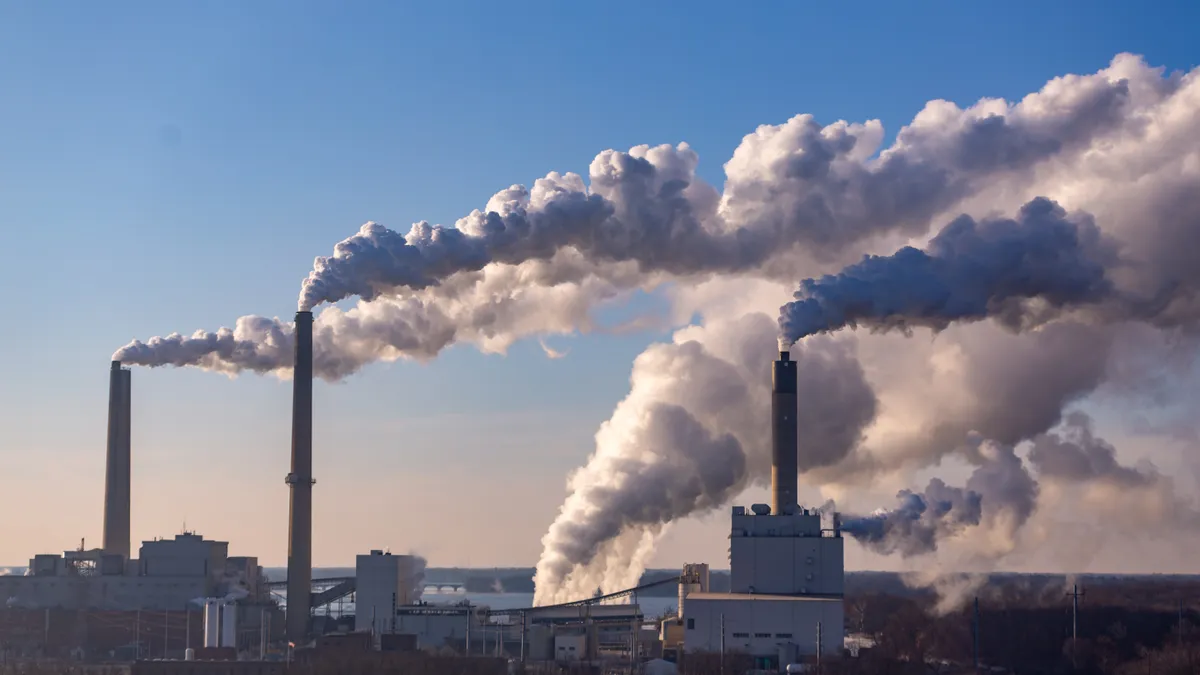Dive Brief:
- Two environmental groups sued the U.S. Environmental Protection Agency in the U.S. District Court for the District of Columbia last week for failing to make a decision by the statutory deadline on Texas’s plan to exempt eight coal-fired power plants from certain national air pollution limits during particular times of the plants’ operation.
- At issue are particulate matter levels emitted from coal plants during startup, shutdown and maintenance that Texas exempts from pollution restrictions mandated by the EPA, the suit claims. The vast majority are PM10 and the much finer PM2.5 emissions.
- It is not usual for EPA to miss a compliance deadline, said Gabriel Clark-Leach, a senior attorney with the Environmental Integrity Project, which filed the complaint against the federal agency. The lawsuit is part of a dispute that started in 2010 over Texas’ implementation of federal PM limits and the resulting harm to public health in the surrounding communities, he said.
Dive Insight:
The Clean Air Act requires the EPA to establish health-based National Ambient Air Quality Standards for PM and five other pollutants. States are required to meet the limits as part of their State Implementation Plans, or SIPs.
Texas’s plan to implement the national air pollution standards for PM allows eight coal plants, four of which are going to be closed or converted to natural gas, to avoid emission limits during maintenance, start-up and plant shutdown, according to the suit. “A great majority of the PM emitted by the power plants — though not all of it — is PM10 and PM2.5,” Clark-Leach said.
“Uncontrolled bursts of particulate matter are dangerous, and unnecessary and it’s irresponsible for the U.S. EPA and Texas to not control,” Clark-Leach said during an Oct. 13 phone interview. The project is also representing the Sierra Club in the suit. The state submitted its implementation plan to EPA on Aug. 20, 2020. EPA was required to approve or reject it by Feb. 20, 2021.
“Until EPA acts on the SIP Revision, the subject power plants will continue to emit uncontrolled bursts of dangerous PM pollution for hundreds, and in some cases thousands of hours each year, even though Texas has not demonstrated that these emissions are protective of public health and the environment,” the suit alleges.
Power plant air permits issued by the Texas Commission on Environmental Quality reveal that the state exemption resulted in a significant increase in PM emissions, the Environmental Integrity Project said. That includes NRG Texas’s Limestone coal plant increasing from 236 pounds per hour to 8,000 pounds per hour at one unit, a 30-fold increase; the Martin Lake plant’s PM emissions growing from 853 pounds per hour to nearly 3,000 pounds per hour, a seven-fold increase, and the San Miguel plant’s from 437.5 pounds per hour to 1,803 pounds per hour, a four-fold increase.
The problem, according to Clark-Leach, is that the emission controls on the plants at issue only work when the plants are fully operational and not when shutting down or firing up. He said air pollution controls that would reduce PM emissions during maintenance, start up or shut down are needed.
The Environmental Integrity Project seeks a court injunction to force EPA to make a decision on Texas’s SIP.













